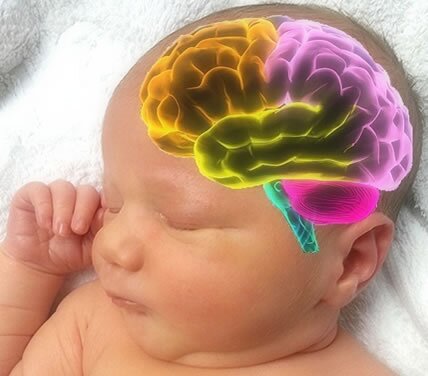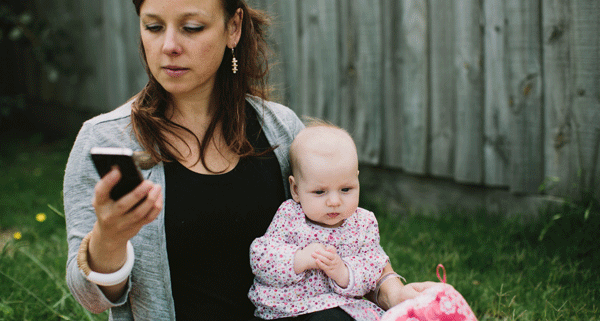
Dr Le
Articles
A baby's brain is "experience dependent" for the development of pathways involved in emotional regulation and communication with others. Essentially, how you interact with your baby affects how your baby's brain develops.
Attachment and early brain development of babies
As part of my role as lecturer and tutor at the NSW Institute of Psychiatry, I teach junior psychiatry trainees about child development and the role of the family. This week we are discussing "attachment", the earliest relationship and infant mental health.

Babies are aware of others and seek communication with others (mainly their caregivers). Babies are able to recognise and prefer a mother's voice and face shape.
As a caregiver, one of your key roles is to reciprocate and be "emotionally attuned" to your baby, like an emotional mirror. Experiments show that there is a fine tuning process for your interactions with your baby. The most famous of these is the "still face" experiment.
Is a parent's screen use, the modern day equivalent of the "still face" experiment?
We know that emotional fine tuning is constantly happening between a baby and the caregiver. The use of facial expressions, eye contact and voice are all essential parts of a baby's emotional regulation and brain development. What if the caregiver was distracted by a smartphone screen? Screens are very good at grabbing our attention and whether we like it or not, our brains are not built to multi-task. Our eyes must be focused to use a mobile screen. Also, how hard is it to have a conversation with an adult whilst using your mobile (let alone a baby that is yet to develop language skills)? When you use your smartphone in front of your baby, you could potentially be disrupting your "attunement interaction", causing what is called an "interactive error". Interactive errors are normal (we only need to get it right 30% of the time) but it must be followed up by a "repair" (an attempt to "re-attune"). These repairs occur every 3 - 5 seconds in interactions with 6-month olds. Thus, if you are using your smartphone in front of your baby, even for a few minutes this could negatively affect your baby's brain development.

What should you do as a parent of a young baby?
Prioritise your interaction with your baby over your smartphone. Smartphones are essential parts of our lives, but how urgent do we really need to answer a text message or social media post? Do you really need to play the latest smartphone puzzle game to pass the time with your baby?
Try to limit your smartphone use to times when your baby is asleep or in the care of another caregiver. Change the settings to your smartphone apps so you are not constantly having to look or check your phone. Getting messaged constantly from your "WhatsApp parenting group" thread? Mute it for the next 8 hours and check it later. Getting notifications flashing on your lock screen every 5 minutes? Turn push notifications off Facebook. Finally, are you finding yourself escaping into your phone more than usual to cope with increased stress? Maybe you need extra support from your family or even a health professional.
Be mindful of your own baby's use of screens
Young babies and toddlers love touchscreens. They are naturally drawn to use them and we love to see our children have fun exploring screens. However, we know the infant/toddler phases are "critical periods" of language, emotional and behavioural development and that a baby's brain development is shaped by a process of what is known as "pruning". Essentially, if you don't use it (a particular important part of the brain), you lose it. Do you really want to replace that part of your baby's brain that is important for face to face communication with an app or a game? If they are looking at a screen, they are definitely not looking at your face and missing out on key developmental milestones. Our suggestion is that babies and toddlers should not have access to smartphones nor tablets. Watching High-5 or The Wiggles on a phone or tablet is different to watching on a television screen, because smaller screens are too small to be shared with others in the room (also if they are holding it in their hands they can't do the "hot potato, hot potato" movements with their hands). Be very aware of how technology is now being sold to your baby and make an informed decision (see following Microsoft ad on "A more human way to do").
Our advice on the most human way to do:
"The value of face to face cannot be replaced" (even by a pretty advert).
July 2021 edit:
In 2015, I asked a question at TEDxAdelaide, "do babies really need the internet?" Today, Molly aged 7 has the answer.. (answer is your baby needs you!). Definitely an idea worth sharing. Click here to learn more.




